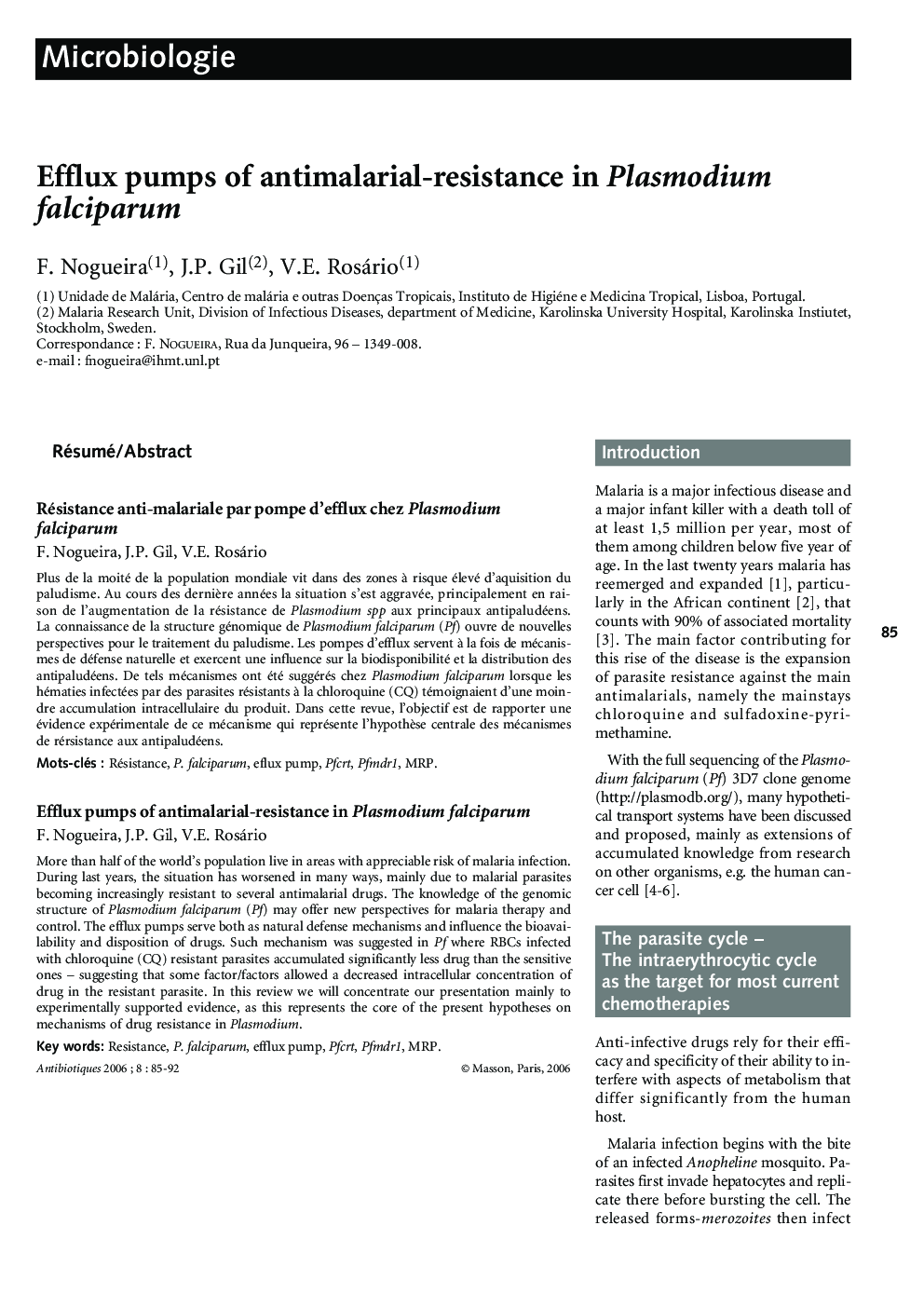| Article ID | Journal | Published Year | Pages | File Type |
|---|---|---|---|---|
| 3396179 | Antibiotiques | 2006 | 8 Pages |
Abstract
More than half of the world's population live in areas with appreciable risk of malaria infection. During last years, the situation has worsened in many ways, mainly due to malarial parasites becoming increasingly resistant to several antimalarial drugs. The knowledge of the genomic structure of Plasmodium falciparum (Pf) may offer new perspectives for malaria therapy and control. The efflux pumps serve both as natural defense mechanisms and influence the bioavailability and disposition of drugs. Such mechanism was suggested in Pf where RBCs infected with chloroquine (CQ) resistant parasites accumulated significantly less drug than the sensitive ones - suggesting that some factor/factors allowed a decreased intracellular concentration of drug in the resistant parasite. In this review we will concentrate our presentation mainly to experimentally supported evidence, as this represents the core of the present hypotheses on mechanisms of drug resistance in Plasmodium.
Keywords
Related Topics
Health Sciences
Medicine and Dentistry
Infectious Diseases
Authors
F. Nogueira, J.P. Gil, V.E. Rosário,
